|
19
FEB
2023
|
|
|
|
Pet Habitat has been appointed exclusive distributor for Bunny Nature products in South Africa. Bunny Nature is a German company established out of love for pets. To this day, Bunny Nature’s goal is to provide small rodents with optimal nutrition specifically adapted to the nutritional needs of the specific animal.
The first 40ft container of BUNNY NATURE premium TIMOTHY HAY and BOTANICALS small animal SNACKS arrived in May 2023 in South Africa.
The pursuit of happiness is something that all people share. And the pursuit of happiness for our pets also brings us together. Happiness begins with the right balanced diet. It is the start of everything.
Pets that are fed the right diet for their species are happy and healthy. Pets that are fed the right diet for their behaviour are happy and healthy. And animals that have no need to worry about their next meal are happy and healthy. That takes us directly to Bunny Nature's lucky formula.
The Bunny Na.. [More]
|
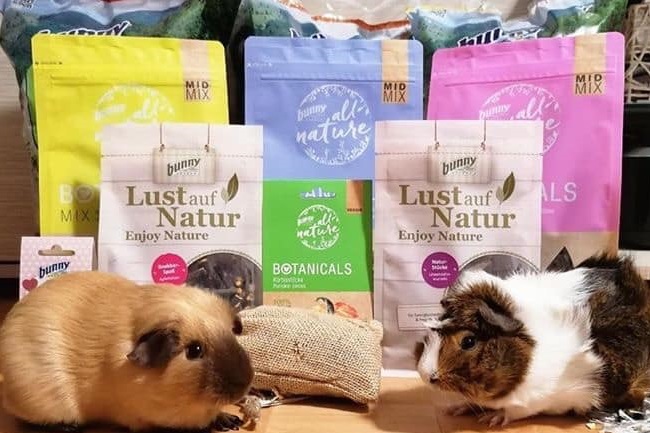
|
|
|
Tags :
Pet Habitat Appointed Distributor for Bunny Nature in South Africa , Pet Habitat Distributes Bunny Nature in South Africa , Pet Rabbit Food South Africa , Guinea Pig Food South Africa , Chinchilla Food So
|
|
|
|
31
MAY
2022
|
|
|
|
Rabbit pellets are a complementary addition to your rabbits’ diet and can be a source of nutrition when fed correctly. Originally, pellets were developed as a cheap way to feed livestock and these earlier foods tended to be high in fat content and lacked the high quality nutrition needed to support long term health and wellbeing.
However, good-quality, high-fibre rabbit pellets are now more widely available. They often contain a base of grass with additional herbs and are supplemented with vitamins and minerals. Functional ingredients such as prebiotics may also be added to help support a healthy digestion.
Do Rabbits Need Pellets?
Given properly, and in the correct amounts, high-quality rabbit pellets offer a variety of vitamins and minerals that can support good health. They should be provided as part of a balanced diet. Rabbits need a high fibre diet made up of 85-90% high quality feeding hay or fresh grass, 10% rabbit safe fresh greens, 5% rabbit nuggets, .. [More]
|
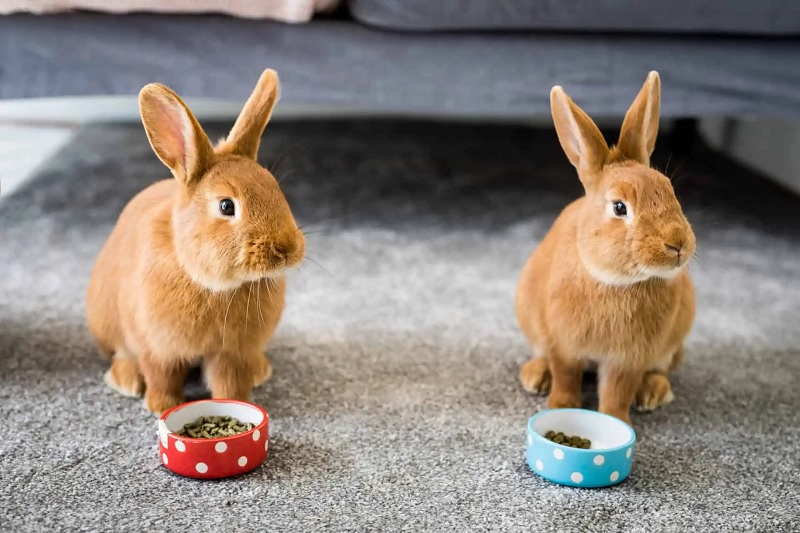
|
|
|
Tags :
What Are The Best Pellets To Feed Rabbits? Rabbit Food South Africa , Rabbit Pellets South Africa
|
|
|
|
21
NOV
2020
|
|
|
|
Muesli diets lead to health problems in rabbits and should be avoided. For many years muesli mixes have been popular as rabbit food but the health risks associated with feeding them have been recognised.
In 1996 a paper was published that highlighted the problems of selective feeding from these mixtures. More recent research in 2013 confirmed that selective feeding is a problem and that obesity and inactivity can be induced by feeding muesli mixes as well as dental disease.
What are muesli mixes?
Muesli mixes are a mixture of cereals, legumes, pellets, extrusions and, in some cases, other ingredients such as locust beans or alfalfa. The mixtures are cheap to produce, easy to store and heavily marketed by the food manufacturers.
Cereals are the staple ingredients of these mixes and they are high in starch and low in fibre, so they are fattening, which is acceptable for short-lived rabbits that are reared for meat, but unacceptable for pet rabbits that can li.. [More]
|

|
|
|
Tags :
Why Rabbit Muesli Diets Are Harmful To Rabbits? South Africa , Why Rabbit Muesli Diets Should Be Avoided South Africa , Pet Rabbit Food South Africa
|
|
|
|
15
DEC
2019
|
|
|
|
While they may roam your lounge rather than the great outdoors, indoor bunnies still need all the things that wild rabbits enjoy – from company of their own kind and opportunities to exhibit their natural bunny behaviours to providing them with the right nutrition.
Indoor bunnies are popular pets – the recent PDSA Animal Welfare (PAW) report reveals that 44% of UK pet rabbits live predominately inside – but are they given everything they need to live their best (indoor) bunny life?
If you’re a devoted bunny owner, you’ll want to ensure you’re providing the five welfare needs for your pets, as outlined by the UK Animal Welfare Act 2006:
Health – protection from pain, injury, suffering and disease and treated if they become ill or injured.
Behaviour – the ability to behave naturally for their species – for example: play, run, dig, jump etc.
Companionship – to be housed with, or apart from, other .. [More]
|
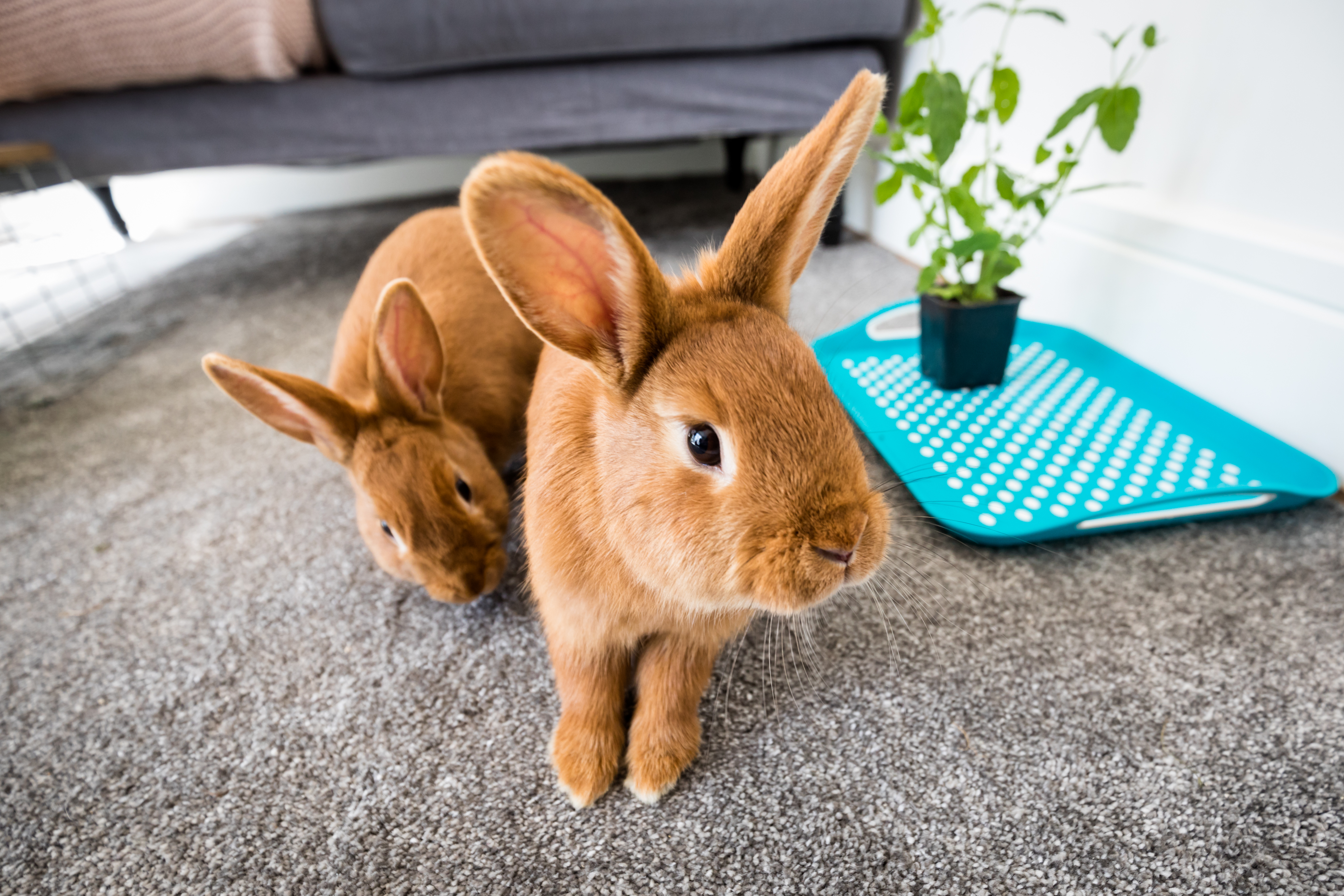
|
|
|
Tags :
How To Care For Indoor Rabbits in South Africa , How To Be A 5-Star Indoor Bunny Owner South Africa
|
|
|
|
29
SEP
2019
|
|
|
|
Degus are sociable, speedy rodents have very different needs from other small furries and providing the correct diet is an essential part of keeping them healthy and happy.
In the wild, degus – who are native to northern and central Chile and live high up in the Andes mountain range – survive on grass and other green vegetation, bark and seeds. In fact, compared to other rodents, degus need to consume large amounts of fibre – at Burgess, they refer to them as ‘fibrevores’.
That’s why hay should make up a large part of their diet. Each day, you need to provide a minimum of their body size in high quality feeding hay to enable their digestive systems to function properly. Chomping on plenty of fresh, tasty hay will also help your degus’ dental health by keeping their continuously growing teeth at the correct length and shape.
DID YOU KNOW?
Wild degus live in groups of up to 100, where they dig complex burrows to .. [More]
|
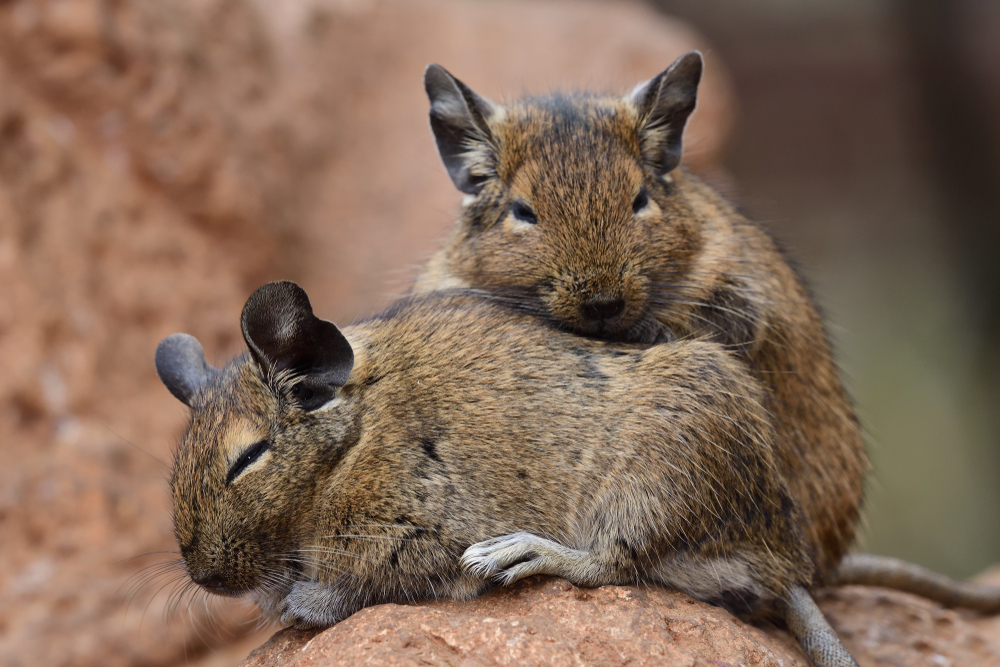
|
|
|
Tags :
Take A Closer Look At Your Degus Diet South Africa , Degus Food South Africa
|
|
|
|
16
SEP
2018
|
|
|
|
There are cat people and there are dog people – there are also rabbit people who open up their homes for free ranging bunnies to enjoy their life as house pets. As rabbits are clever, clean creatures who can be litter-trained, why not have bunnies as part of the family?
Having indoor rabbits means bunny-proofing your home. These chewy little pets will get their teeth into anything they can – furniture, curtains, electric cables, slippers, plants and practically anything else. So, when you’re not able to keep a very close eye on them, they’ll need to have a safe area to spend time in that’s equipped with cosy beds, hiding places, litter tray, safe toys to chew and plenty of good quality feeding hay to nibble on.
To coax your rabbits into their safe space, try some irresistible treats such as Bunny Nature Crunchy Crackers, which are perfect for hand feeding.
Meeting The Nutritional.. [More]
|
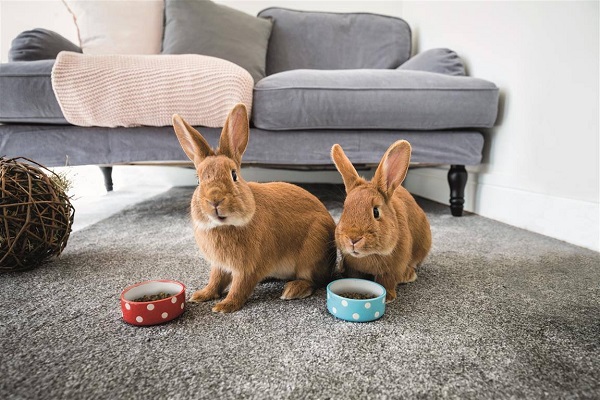
|
|
|
Tags :
Caring For Rabbits In The Home South Africa , Indoor Rabbits South Africa , Pet Rabbit Food South Africa
|
|
|
|
06
JUL
2018
|
|
|
|
Bunny Nature Health Herbal Aid is an excellent recovery diet specially formulated for rabbits and guinea pigs, to help them through any poorly stages. We all know the problems you face trying to get rabbits and guinea pigs to eat when ill. Gut stasis can be devastating, and any kind of stress trigger can lead to appetite loss.
Filled with essential long length digestible and indigestible fibers, this complementary feed for sick and recuperating rabbits and guinea pigs can play a vital part of critical care nutrition. It’s one of those essential feeds you need to keep in your cupboards. With regard to animal health and owner satisfaction, the Bunny Nature Health products were developed by veterinarians on the basis of naturally effective plants and herbs.
It is based on the diseases most frequently presented in medical practices in rabbits and guinea pigs. The targeted plant selection of Bunny Nature Health products supports the health of rabbits, guinea pigs,.. [More]
|
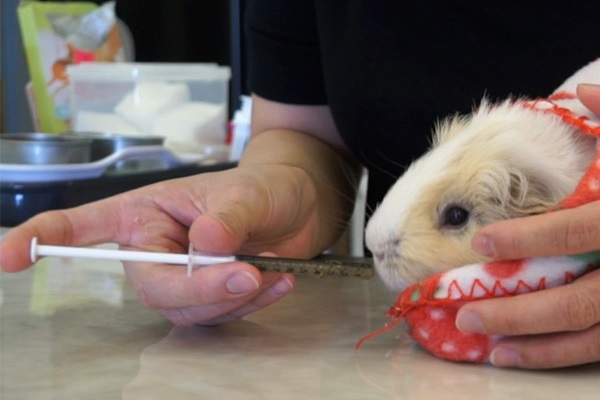
|
|
|
Tags :
Feeding Sick Rabbits & Guinea Pigs , Excel Dual Care Recovery
|
|
|
|
26
NOV
2017
|
|
|
|
Looking for smart and sociable small furries who love to interact with humans and provide hours of entertainment in daylight hours with their endless energy? Then you’ll find degus an absolute delight!
The degu is a small rodent that is native to Chile. In the wild, these supremely social animals live in groups of up to 100, where they dig complex burrows to hide from predators, complete with nests and food stores.
Unlike many small furries, degus are diurnal, which means they are active during the day. These lively little creatures, which look rather like large gerbils, love human interaction and will be happy living in a busy home where there’s plenty going on for them to keep a watchful eye on.
In Good Company
The first rule when keeping degus is never to have just one. These small pets need the company of at least one other degu chum (ideally from the same litter) or they will feel vulnerable and depressed, which will have a detrimental eff.. [More]
|
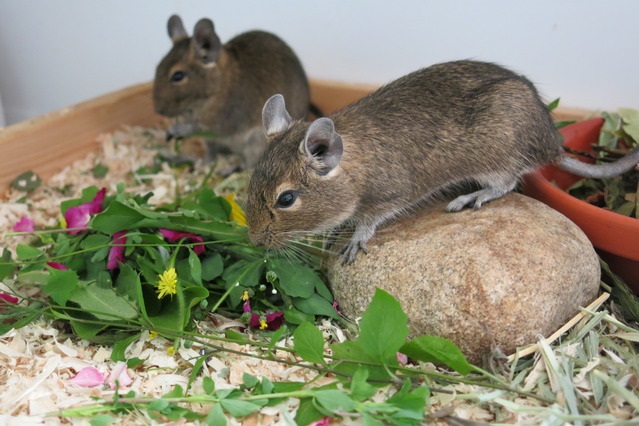
|
|
|
Tags :
Why Degus Are Becoming Popular Pets in South Africa , Degus Food South Africa
|
|
|
|
19
MAR
2017
|
|
|
|
Degus are not common household pets so there is a misconception that they are hard to look after, or they have special dietary needs. This could not be further from the truth, degus are very easy to care for and feed.
The only special consideration revolves around their susceptibility to health problems related to high sugar foods. Degus are very sensitive to sugar in the same way humans are with diabetes. Sugary foods should be avoided. But with some care on your part, it’s not hard to make sure they are receiving a healthy balance of nutrients from their food.
The degu diet in the wild consists of grasses, seeds and roots. It is nutrient poor so they spend a great deal of time foraging and eating. Degus need to keep their digestive systems busy with a mix of two kinds of fibre moving through their gut at all times (these types of fibre are called digestible fibre and indigestible fibre).
The majority of the degus diet should be high in indigestib.. [More]
|
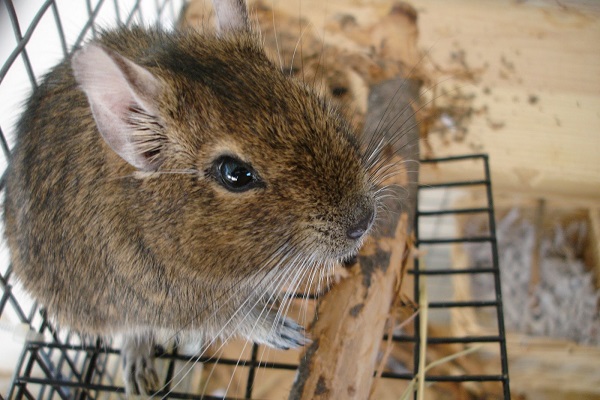
|
|
|
Tags :
Degus Need A High Fibre Diet South Africa , Feeding Your Degus Healthy Food South Africa , What Do Degus Eat South Africa , Degus Food South Africa , Degus Diet South Africa
|
|
|
|
12
FEB
2017
|
|
|
|
We would like to urge all rabbit and guinea pig owners to stop feeding their pets muesli-based foods in an effort to improve their diets. Please dump the junk. There is no such thing as a healthy muesli food. Muesli-style foods, which can contain flaked maize, peas, pellets, grains and seeds, are extremely low in fibre and have been shown to increase the risk of serious illness in rabbits and guinea pigs, with the PDSA PAW Report 2013 stating they are the cause of deadly dental and digestive problems.
We think pet owners should ditch plain grains in favour of nutritionally rich pellets that aid digestion and dental health. Any changes to your pet’s diet should be done over time though so not to upset their digestion.
Why stop, why now?
Even if your pet has been fed a muesli-based diet all their lives, they will still benefit from a swap to hay, leafy greens and nuggets. Just introduce it gradually and in small quantities to reduce the likelihood of stomach .. [More]
|
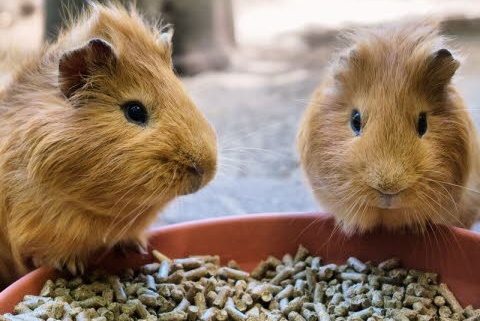
|
|
|
Tags :
Stop Feeding Muesli To Rabbits & Guinea Pigs
|
|
|
|
|
|
Category List
|
|
|
|
|
|
Archive List
|
2025 2023 2022 2021 2020 2019 2018 2017 2016 2015 2014 |
|
|